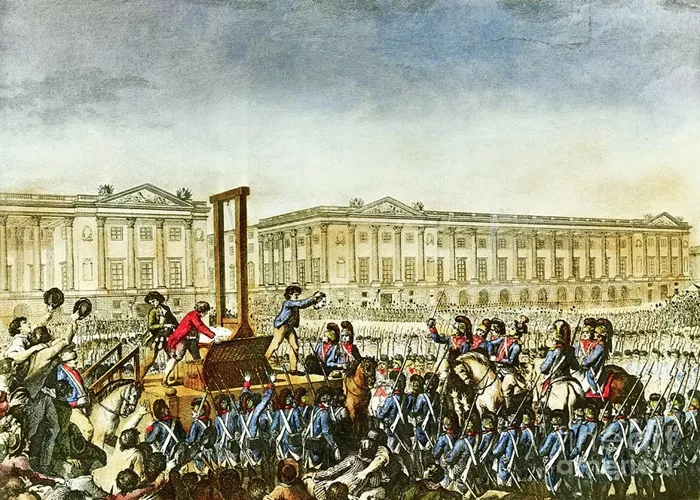January 21 holds significance in American history, marked by various pivotal events that have shaped the nation. This article will explore notable occurrences on this date, providing detailed accounts of each event and its implications.
What Happened on January 21 in American History?
The Execution of King Louis XVI (1793)
On January 21, 1793, King Louis XVI of France was executed by guillotine. This event was a critical turning point in the French Revolution, symbolizing the end of absolute monarchy in France and the rise of republicanism. The execution followed a period of political turmoil and widespread unrest in France. Louis XVI was found guilty of treason for attempting to flee the country and for his perceived betrayal of the French people during a time of crisis.The repercussions of this event were felt beyond France. It inspired revolutionary sentiments across Europe and the Americas, influencing movements for democracy and human rights. In America, the ideals of liberty and equality echoed through the revolutionary fervor that had led to the Declaration of Independence just over a decade earlier. The execution highlighted the dangers of tyranny and set a precedent for the radical changes that would follow in France and other nations.
Jefferson Davis Resigns from the U.S. Senate (1861)
On January 21, 1861, Jefferson Davis, representing Mississippi, resigned from the United States Senate. This act was significant as it occurred during a time of escalating tensions between the Northern and Southern states over issues such as slavery and states’ rights. Davis’s resignation came shortly after Mississippi seceded from the Union, marking a critical step toward the Civil War.Davis would later become the President of the Confederate States of America. His resignation symbolized the deepening divide within the country, as Southern leaders began to reject federal authority in favor of state sovereignty. This event foreshadowed the impending conflict that would engulf the nation for four years.
The Sullivan Ordinance (1908)
In 1908, New York City’s Board of Aldermen passed an ordinance known as the Sullivan Ordinance, which made it illegal for women to smoke in public establishments. Although this measure was vetoed by Mayor George B. McClellan Jr., it reflects societal attitudes towards gender roles at the time. The ordinance was part of a broader movement to regulate women’s behavior in public spaces, highlighting ongoing struggles for women’s rights.This incident is significant as it illustrates early 20th-century gender norms and societal expectations placed upon women. The backlash against such regulations contributed to the growing women’s suffrage movement, which sought to secure equal rights for women, including their right to vote and participate fully in public life.
The First Episode of “The Shadow” Aired (1941)
On January 21, 1941, “The Shadow,” a radio program featuring a mysterious crime-fighter with psychic abilities, aired its first episode. This show became one of America’s most popular radio dramas during its run. The character of The Shadow was notable for his dual identity as both a wealthy socialite and a vigilante who fought crime.The impact of “The Shadow” extended beyond entertainment; it reflected cultural themes prevalent during World War II, such as justice, morality, and heroism. The program’s popularity paved the way for future superhero narratives in American media, influencing comic books and films that followed.
The Battle of Khe Sanh Begins (1968)
On January 21, 1968, one of the most publicized battles of the Vietnam War commenced at Khe Sanh. This battle involved U.S. Marines defending their base against North Vietnamese forces. It became emblematic of American military involvement in Vietnam and raised questions about U.S. strategy in the region.The siege lasted several months and resulted in significant casualties on both sides. The battle’s coverage by media outlets played a crucial role in shaping public perception of the Vietnam War back home in America. It highlighted issues related to military engagement and civilian impact during wartime.
Jimmy Carter Pardons Draft Evaders (1977)
On January 21, 1977, President Jimmy Carter issued a pardon to nearly all Vietnam War draft evaders on his first full day in office. This decision was part of Carter’s broader effort to heal national wounds from the divisive Vietnam War era.Carter’s pardon aimed to provide closure for those who had resisted military service during a controversial conflict that many viewed as unjust. This act resonated deeply with Americans who had opposed the war or had been affected by its consequences. It also sparked discussions about patriotism, dissent, and government authority.
Conclusion
January 21 has witnessed numerous historical events that have shaped American society and politics over centuries. From pivotal moments like King Louis XVI’s execution to cultural milestones such as “The Shadow,” each occurrence reflects broader themes within American history—struggles for rights, shifts in societal norms, and reactions to national conflicts.These events remind us how interconnected global history can be with local narratives while illustrating how past actions continue to influence contemporary society today. Each story from this date serves as a testament to America’s evolving identity through triumphs and trials alike. This article provides an overview of key historical events that occurred on January 21 throughout history while highlighting their significance within American context. Each event contributes to our understanding of how history shapes our present day—a reminder that every date carries its own stories worth remembering.
Related Topics:

